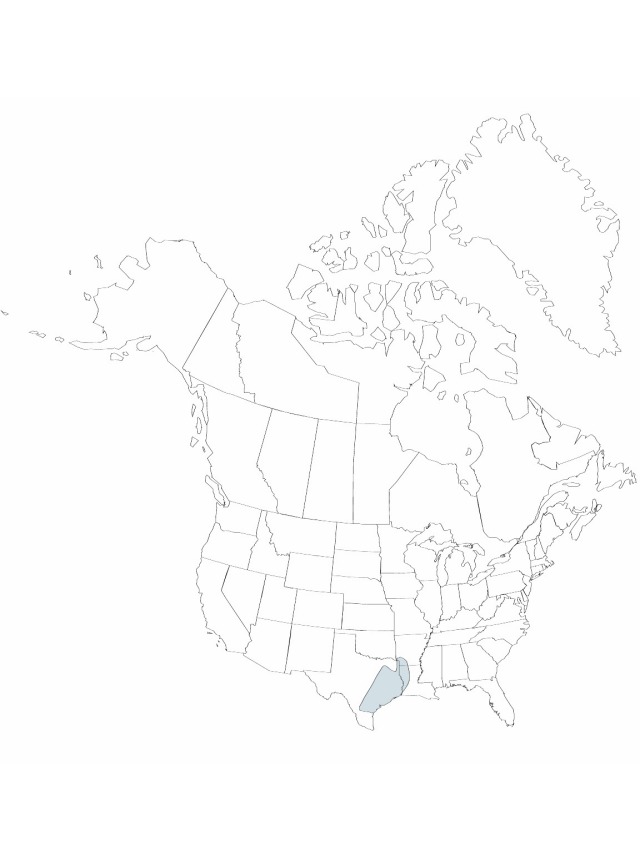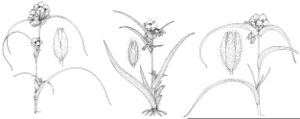Tradescantia reverchonii
Trans. Acad. Sci. St. Louis 14: 190. 1904.
Herbs, erect or ascending, rarely rooting at nodes. Roots thick, fleshy, densely brownish-tomentose. Stems erect or ascending, unbranched or sparsely branched, 30–105 cm; internodes arachnoid-pubescent. Leaves spirally arranged, sessile; blade linear-lanceolate, 10–35 × 0.7–2.8 cm (distal leaf blades equal to or narrower than sheaths when sheaths opened, flattened), apex acuminate, arachnoid-pubescent, especially on sheaths. Inflorescences terminal, often axillary; bracts foliaceous. Flowers distinctly pedicillate; pedicels 1–2.3 cm, pilose or villous with eglandular or mixed eglandular, glandular hairs; sepals 5–14 mm, pubescent with mixture of glandular, eglandular hairs; petals distinct, bright blue-violet, rarely rose or white, broadly ovate, not clawed, 15–18 mm; stamens free; filaments bearded. Capsules 6–8 mm. Seeds 3–4 mm; hilum as long as seed. 2n = 12, 24.
Phenology: Flowering spring–summer (Mar–Jul).
Habitat: Sandhills with oaks, pine woods, rocky open woods, rarely seepage areas, and roadsides
Distribution

Ark., La., Tex.
Discussion
Selected References
None.
